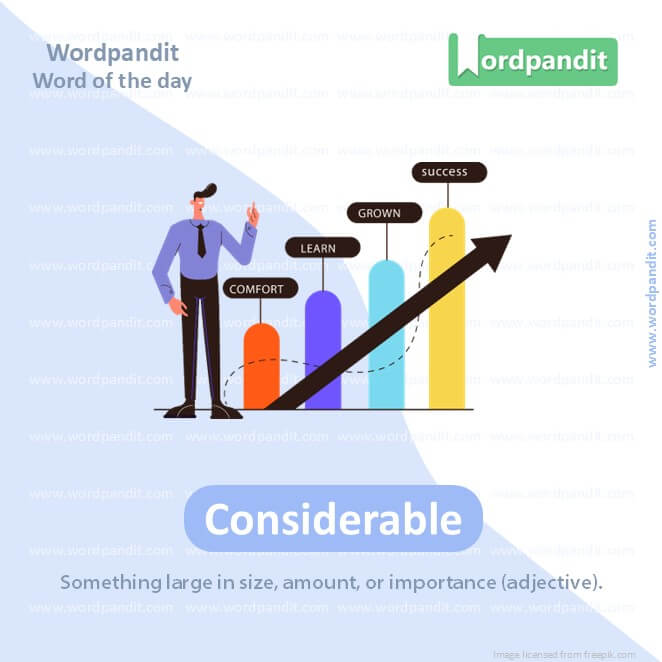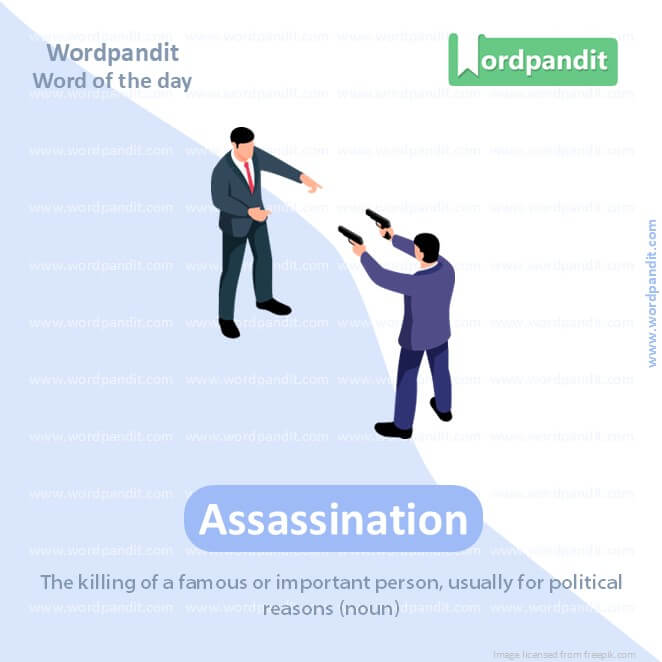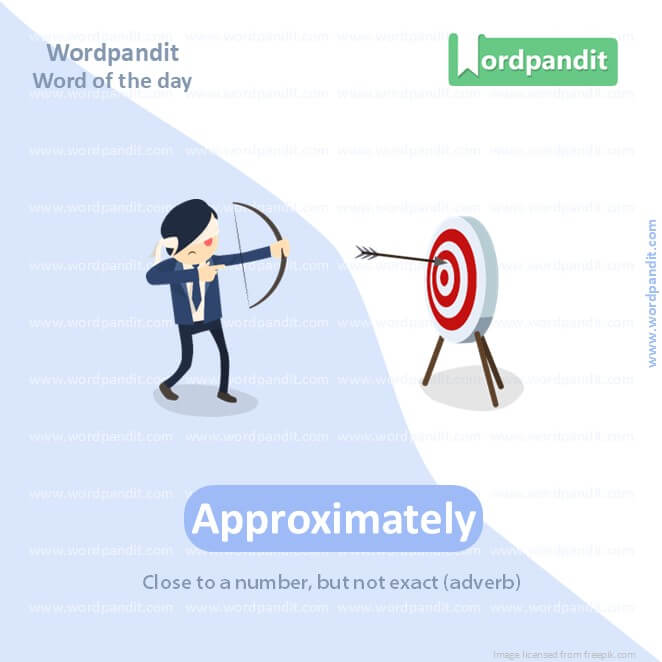Daily Vocabulary Words: Enhance Your Lexicon with Leading Newspapers & Publications
Welcome to the Daily Vocabulary section at Wordpandit!
Our mission is straightforward: to bring you essential vocabulary words featured in top newspapers and publications worldwide. By focusing on words you’ll encounter in renowned sources, we aim to help you enhance your vocabulary effectively and practically.
Our selection includes words from:
– The New York Times
– The Washington Post
– Scientific American
– BBC
– The Guardian
– Psychology Today
– Wall Street Journal
– The Economist
– The Hindu
– The Times of India
– The Economic Times
– Hindustan Times
– Live Mint
– The Indian Express
– And many more.
We are committed to your vocabulary development. Simply visit this section regularly and explore the daily posts. This is your go-to repository for commonly used words, providing significant practical benefits by familiarizing you with vocabulary from the leading publications listed above.
Make it a habit to visit our website daily and expand your lexicon with words from top newspapers and publications.
Word 1: Radicalisation
Context: Andrew Tate in fueling what national police chiefs describe as the “quite terrifying” misogynistic radicalisation of boys and young men, he is equally straightforward.
Source: BBC
Explanatory Paragraph: Imagine if someone kept telling you the same thing over and over until you started to believe it so much that you only thought their way and didn’t listen to other ideas anymore. That’s what happens during “radicalisation.” It’s when people start believing very extreme ideas, usually because someone convinced them to think that way.
Meaning: The process by which someone adopts extreme views or beliefs (noun).
Pronunciation: rad-i-kuh-lai-zay-shun
Synonyms: extremism, fanaticism, zealotry, indoctrination, polarization
Usage Examples:
1. The group is worried about the radicalisation of young people through social media.
2. Radicalisation often happens when people feel isolated or ignored.
3. Schools are working hard to prevent the radicalisation of students.
4. The documentary shows how radicalisation can lead to dangerous actions.

Word 2: Considerable
Context: After its initial defeat of Russia’s invasion, Ukraine has been able, with considerable outside help, to resist Putin’s push westwards, but that has been its limit.
Source: The Guardian
Explanatory Paragraph: If you have a big pile of toys, you might say you have a lot of toys! “Considerable” means something that’s really big or important. It’s bigger than usual or matters more than other things.
Meaning: Something large in size, amount, or importance (adjective).
Pronunciation: kuh-n-sid-er-uh-bull
Synonyms: substantial, significant, large, notable, important
Usage Examples:
1. The project required a considerable amount of time to complete.
2. She made a considerable effort to prepare for the exam.
3. The charity received a considerable donation from the community.
4. His mistake caused a considerable delay in the work.

Word 3: Assassination
Context: Serious questions remain following the July 13 assassination attempt in Butler, Pa., in which a 20-year-old sniper shot and wounded the former president and killed a rally attendee before the Secret Service returned fire and killed him.
Source: Washington Post
Explanatory Paragraph: Imagine if a very important person, like a president, is suddenly hurt or killed by someone else. That’s called an “assassination.” It usually happens to people who are famous or in charge of big things.
Meaning: The killing of a famous or important person, usually for political reasons (noun).
Pronunciation: uh-sas-i-nay-shun
Synonyms: murder, killing, slaying, execution, elimination
Usage Examples:
1. The assassination of the president shocked the entire nation.
2. The police worked hard to investigate the assassination of the political leader.
3. There are many famous cases of assassination throughout history.
4. The film explores the aftermath of a high-profile assassination.

Word 4: Emphasizing
Context: That involves the Harris-Walz ticket turning the volume up to 11 on abortion. Ms. Harris, Gov. Tim Walz and their campaign surrogates must keep emphasizing — on the stump.
Source: The New York Times
Explanatory Paragraph: If you’re really excited about your favorite toy, you might say it again and again to show how important it is. “Emphasizing” is when you point out something important or make sure people notice it.
Meaning: Giving special importance or attention to something (verb).
Pronunciation: em-fuh-sai-zing
Synonyms: stressing, highlighting, pointing out, underscoring, accentuating
Usage Examples:
1. The teacher kept emphasizing the importance of reading every day.
2. She is emphasizing her commitment to the project by working overtime.
3. He raised his voice, emphasizing the main points in his speech.
4. The author is emphasizing the need for environmental action in her book.

Word 5: Approximately
Context: The sector is primarily driven by approximately 100 mn micro and small retailers, often referred to as “mom and pop” stores, who operate across urban and rural areas.
Source: The Economic Times
Explanatory Paragraph: Imagine if you have a handful of candies, but you don’t count them one by one. Instead, you say, “I have about ten candies.” That’s what “approximately” means. It’s a guess or an estimate, not an exact number.
Meaning: Close to a number, but not exact (adverb).
Pronunciation: uh-prox-uh-mit-lee
Synonyms: roughly, nearly, around, about, close to
Usage Examples:
1. The meeting will last approximately two hours.
2. Approximately 50 people attended the event.
3. The flight takes approximately six hours.
4. The store is approximately one mile from here.
Word 6: Harnessing
Context: It is an excellent example of harnessing technological innovation to empower rural women.
Source: Indian express
Explanatory Paragraph: Harnessing is like using a special tool or power you have for a good reason. Imagine you have a superhero power, and you use it to help people or make something better. That’s like harnessing your power.
Meaning: The act of utilizing something effectively to gain control or make use of its power (Verb).
Pronunciation: HAH-r-ness-ing
Synonyms: Utilizing, Employing, Exploiting, Leveraging, Capitalizing, Applying, Making use of.
Usage Examples:
1. She is harnessing solar energy to power her home.
2. The team is harnessing their skills to win the competition.
3. By harnessing the latest technology, we can improve our product.
4. He is harnessing his knowledge to teach others.

Word 7: Initiatives
Context: At a time when women are leading governance and development initiatives across the world, India’s legislature, a pivotal organ of its democracy, cannot afford to be left behind.
Source: The Hindu
Explanatory Paragraph: If you come up with a great idea to help clean the park or make the playground safer, that’s called an “initiative.” It’s when someone starts something new to make things better.
Meaning: Plans or actions designed to solve a problem or improve something (noun).
Pronunciation: in-ish-ah-tivs
Synonyms: plans, efforts, actions, campaigns, programs
Usage Examples:
1. The government introduced new initiatives to improve education.
2. The company launched several green initiatives to reduce waste.
3. Community initiatives are helping to reduce homelessness.
4. The school started an initiative to encourage reading among students.
Word 8: Uncontainable
Context: Tomoko died for us all, is the subtext here – but it is important to note that she did not die from an uncontainable virus.
Source: Aeon
Explanatory Paragraph: Imagine if you had a super fun toy and you were so excited that you couldn’t stop jumping around. That’s what “uncontainable” means—it’s when something is so big or strong that it can’t be held back or kept in one place.
Meaning: Something too powerful or large to be controlled or kept in one place (adjective).
Pronunciation: un-kon-tay-nuh-bull
Synonyms: uncontrollable, unstoppable, overwhelming, boundless, limitless
Usage Examples:
1. The child’s excitement was uncontainable when he saw his birthday presents.
2. The uncontainable fire spread quickly across the forest.
3. Her uncontainable joy was clear when she won the race.
4. The flood caused uncontainable damage to the nearby homes.
Word 9: Intuitively
Context: We investigated this with the use of problems that are designed to reveal whether someone is thinking intuitively or analytically.
Source: Psyche
Explanatory Paragraph: Imagine if you just know something without being told, like how to ride a bike without anyone showing you. That’s what “intuitively” means—you understand something easily without having to think too much about it.
Meaning: Doing or understanding something without needing to think or be taught (adverb).
Pronunciation: in-too-uh-tiv-lee
Synonyms: naturally, instinctively, automatically, easily, without effort
Usage Examples:
1. She intuitively knew how to solve the puzzle.
2. The artist works intuitively, following his feelings rather than a plan.
3. He intuitively felt that something was wrong.
4. Children often learn new skills intuitively through play.
Word 10: Deregulation
Context: Even in 1981, conservative policy wonks wanted to “revitalize our economy” through deregulation and massive tax cuts to “strengthen our national security” with beefed-up defense budgets and to “halt the centralization of power in the federal government” by privatizing public goods.
Source: Aljazeera
Explanatory Paragraph: Imagine if someone said you didn’t have to follow as many rules when playing a game. That’s like “deregulation,” which means taking away some rules or controls, usually in business or government.
Meaning: The process of removing rules or controls from an industry or activity (noun).
Pronunciation: dee-reg-yoo-lay-shun
Synonyms: liberalization, removal of restrictions, loosening, relaxation, free market reform
Usage Examples:
1. Deregulation allowed the airlines to set their own ticket prices.
2. The government’s deregulation of the energy sector led to more competition.
3. Many people believe deregulation will benefit the economy.
4. The financial crisis raised concerns about the deregulation of banks.













